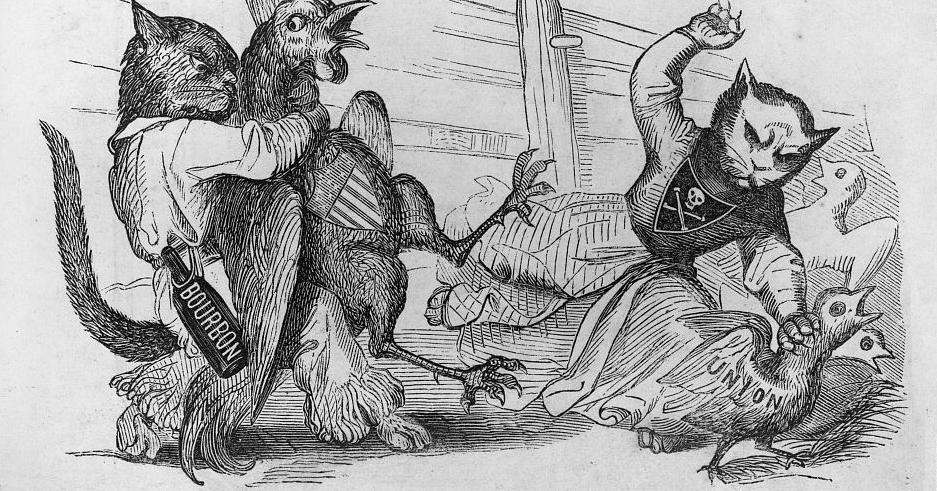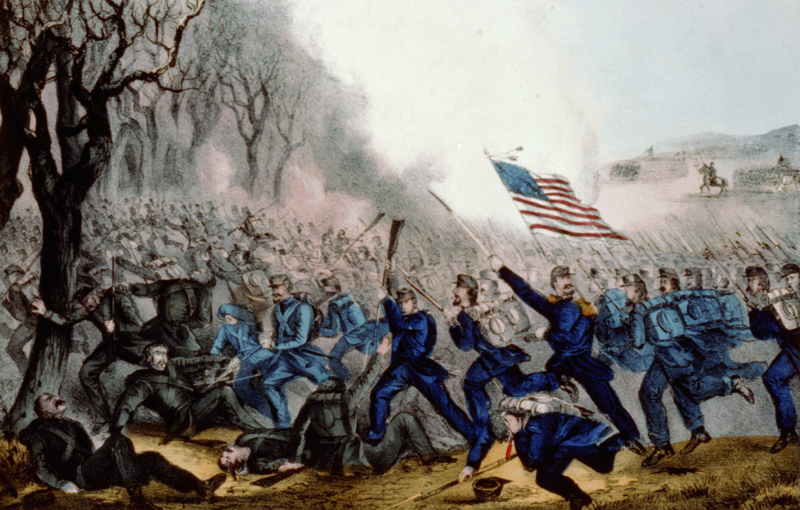I found a interesting fact which shows the depth of CSA depravity and why a negotiated peace might have been difficult. The CSA actually considerd germ warfare.
They tried but failed to get the plot into actual effect.
I found a interesting fact which shows the depth of CSA depravity and why a negotiated peace might have been difficult. The CSA actually considerd germ warfare.
They tried but failed to get the plot into actual effect.
It never would have worked anyway, since yellow fever is spread by mosquitoes, not dirty clothes.
Sure, but the thing is- they tried, and part of the attempt was to kill Lincoln.
My impression is that it wouldn’t have taken much inducing. European nations would have been very happy to be able to buy cotton and other raw materials directly from the South without having to deal with US tariffs. If the war had appeared to be going seriously badly for the US, I’m sure Europe would have jumped in to recognize the CSA; only the fear of backing a losing horse (and the strong pro-US popular sentiment in their countries) prevented them from doing so.
Wow, that’s fucked up. I note that when the plot was made public, this evil madman was punished by…being elected Governor of Kentucky by a landslide. Seriously, fuck Kentucky.
Tariffs were not an issue here. Cotton was an export and countries only place tariffs on imports.
More seriously, according to that link the evidence against Blackburn was less than entirely convincing. And besides, he was a strong advocate for better river navigation. ![]()
As to Kentucky as a whole, it was divided during the Civil War but predominantly supportive of the Union. 100,000 of its men fought for the Union (including 24,000 black Kentuckians), compared to 25-40,000 who fought for the Confederacy. The governor (a Confederate sympathizer) promoted neutrality but was thwarted by an overwhelmingly pro-Union legislature, and Kentucky was controlled by Union forces from late 1862 onwards.

Understanding causes of the Civil War, A house divided against itself cannot stand.' I believe this government cannot endure permanently half slave and half free.
From what I’ve read, I agree with this. Confederate support in Kentucky is often overstated today.
But today Kentucky is a hotbed of Lost Cause.
And your cites for this highly dubious allegation are…?
Purely anecdotal but I tend to agree. I’ve traveled in the south and I’ve found that Kentuckians seem to want to prove they’re more southern than the deep south.
I’ve lived in Kentucky for a number of years in three separate locales (central and eastern KY) dating back to the late 80s - early 90s, and never experienced any sense of deep Southern connection, much less Confederate sympathy.
We’ve been residents for a year in our current locale, and the only instance of Confederate regalia I’ve spotted in all that time was last week on a foray to a small town located down the Bert T. Combs Mountain Parkway. There was a guy with a chest-length white beard wearing a camo outfit, gassing up his pickup truck which had a Confederate flag front license plate substitute.
But you could see something similar in upstate New York. 
But you could see something similar in upstate New York.
Undeniably true.
Kentucky is a lot of things. Yes, it is culturally Southern but that’s not terribly surprising as settlement came mainly from Virginia. “Southern” cultural can range almost as far north as, say, Indianapolis (IN) or Springfield (IL) depending on how you look at it*. But these areas didn’t support secession either although some, repeat some of them turned hard against the war as the casualty lists stretched. Kentucky specifically had the legacy of Henry Clay, too, and even though it didn’t go Republican early, it leaned ideologically in that direction.
*I’ll admit to some amount of exaggeration here. The southern portions of these states were settled first by Southerners. However, they didn’t bring slavery with them.
On the subject of European intervention: the British were very wary of getting involved because they were vulnerable in Canada. The French, who were not, were pretty gung-ho about supporting the Confederacy because they (A) wanted cotton and (B) wanted a buffer between the United States and the French attempt to conquer Mexico and turn it into a colony. But the French couldn’t do anything without British support, and London had good cause to slow-walk any diplomacy.
First, at some point the British came to realize that Lincoln was not going to budge on the fundamental issue, although it’s hard to pinpoint exactly when and how. Lincoln did not, and would not, care one whit if England sank into the sea compared to destroying the Confederacy. Diplomatic pressure was therefore pointless. Furthermore, as much as the Lancashire mills might need cotton by 1863, the British Isles needed grain and corn and lots of both - which were supplied from northern sources, not Southern. And it’s not easy to put the screws on someone who controls your food supply.
Finally, there was the issue of Canada which I alluded to above. By midwar the United States had the most powerful army in the world, and a navy that was competitive with the British. But the Union had a key headstart in ironclad technology while the Vritish had two unfinished ships. Now there were some advantages to her Majesty’s Royal Navy’s experimental ships, but also some pretty huge disadvantages. If it came to war, the British might well punch above their weight but they couldn’t realistically deal with a Union army corp marching on their position. If they attacked Union blockades, that would mean potentially taking on various monitor-type vessels on very poor odds. And even if they won and ensured Southern freedom, they would have possibly lost Canada in the bargain.
Another big factor was the British had a lot of commitments within their Empire which took priority over supporting the Confederates. The Crimean War had ended in 1856 and showed the British Army needed extensive reforms and modernization, which were still ongoing during the Civil War period. The Sepoy Mutiny had just ended in 1859 and the British was just assuming direct control of India. The British were expanding into Nigeria during this period. China was in the middle of its own massive civil war and the British saw this as having more effect on British interests than events in America.
 Medium – 29 Jun 15
Medium – 29 Jun 15

The national memory of the Civil War is confused. The historical rewriting of the states’ rights motivation of the Confederacy, or “Lost…
Reading time: 3 min read
Lost Cause ideological history has created a false dichotomy in which the motivations of the Confederacy are shrouded in a grey mist that obfuscates the reality of slavery, not state’s rights, as the main reason for the war. As such, it gives the Confederacy a type of honor and nobility that the reality of the war does not afford. For an illustrative example, look no farther than the state of Kentucky… The complications of Civil War memory in Kentucky only intensified from the end of the nineteenth century through the early twentieth. Despite the state’s history in the Union, memorials were set up to Confederate heroes and veterans. All events revolving around reconciliation between former rivals in the war skewed to unspoken apologies to the Confederacy. Black Kentuckians’ attempts to memorialize their dead were marginal.
Kentucky became Confederate after the war, feeling more attachment and allegiance to the Lost Cause than to its own true place in the war’s history. It could be said that Kentucky seceded after the fighting was done. And if a former Union state is so confused about its place in history, then the work to undo the false narrative of the Lost Cause in the national historical memory of the United States will take some time.
Did you somehow fail to notice that this guy is making claims about sentiment in the late nineteenth century? Zero relevance to present-day Kentucky.
It also looks like he has it backwards about regional variance in pro-Confederate sentiment back then. Contrary to what he alleges, parts of western Kentucky tended to be sympathetic toward the south, while the mountaineers of eastern Kentucky disdained the Confederacy.
Read it again.
Pathetic.